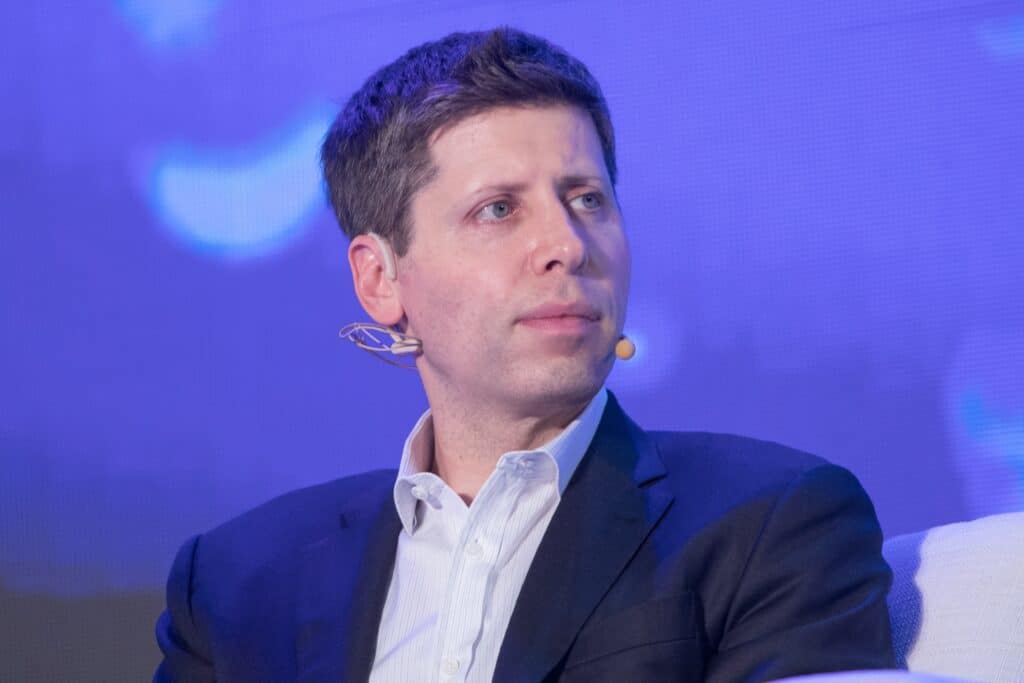A major deal between News Corp and OpenAI, the launch of an AI voice that sounded eerily familiar, and a Google update to its search products that could limit the diversity of sources.
It’s been a big couple of weeks for generative AI, but a precarious time for gender equity efforts.
First, OpenAI’s new voice mode was released during a significant and global demonstration, with the voice sounding disturbingly similar to Scarlett Johansson’s character in the 2013 film Her.
The fact that the voice demonstrated had a stereotypical female name and voice and came across to many as sounding “flirty” was alarming enough, given that it’s a product designed to help and serve people.
But also concerning was the fact that the voice was so eerily similar to an AI character in a movie that OpenAI founder Sam Altman has previously declared is his favourite film about AI. For those who haven’t seen it (spoiler ahead), Her doesn’t end well in terms of what it says about humanity and our ability to fall in love with AI.
Worse, within a few days of the voice launch, Johansson released a statement saying she had actually been approached by Altman in September last year with an offer to be “the voice of the current ChatGPT 4.0 system. She said Altman has said her voice “would be comforting to people”. Johansson declined the offer.
So, needless to say, when she heard the demo released, she was “shocked, angered, and in disbelief that Mr Altman would pursue a voice that sounded so eerily similar to mine.”
Johansson hired a lawyer, and OpenAI swiftly removed the voice option “Sky” on Monday this week. But we’re left wondering why OpenAI decided to launch a voice so similar to Johansson, despite her rejecting what would have likely been a lucrative paid offer to hand over her IP.
The past fortnight has also brought news from a different AI giant: Google, which outlined some significant enhancements to its new generative AI features, including leveraging AI to provide search users with more holistic answers to queries. The feature is expected to be rolled out to more than one billion users by the end of the year.
The update means less search traffic going through to news and information providers, with people accessing the info direct from Google’s search robots, rather than having to click through to learn more from websites (including independent news websites like Women’s Agenda).
But then, on Thursday, came a different kind of AI announcement—but one that again highlights the risks ahead for anyone trying to operate outside the influence of big tech and big business. And as we know from the numbers, these are still mostly the domains of men when it comes to senior leadership and decision-making.
We learned that OpenAI and News Corp have signed a multi-year US$250 million deal, enabling OpenAI to use News Corp’s content within its generative AI platforms, including ChatGPT.
This means ChatGPT can share News Corp content when responding to user prompts, while the deal will also see News Corp provide ” journalistic expertise to help ensure the highest journalism standards are present across OpenAI’s offering.”
Seeing money flow into journalism is a good thing.
But it’s a problem when that money only goes to large publishers—in this case, the biggest newspaper publisher in the world, and one whose mastheads — particularly in Australia — typically lean right.
As one ethics researcher told The New Daily, when models are trained on data, they pick up on “embedded values, morals, world views, ideologies and cultural traits that are prominent in the training data.”
Rebecca Johnson from the University of Sydney also made the point that we risk seeing OpenAI’s models leaning one way, and potentially Google and Meta leaning another – that we risk seeing the creation of “behemoth, polarised models that can lead to further silos or ideas.”
Given that men control and own these tech companies, just as men also own the world’s biggest publishers and providers of news, entertainment, and information content, it’s seemingly men who’ll determine how the biggest language models in the world are trained and what they’re trained on.
OpenAI does not have a woman on its board, after two female board directors left in the drama that engulfed the company in late 2023. One such exit included Australian Helen Toner, who has strong research interests in AI safety and security.
News Corp is still largely controlled by Rupert Murdoch, with his son Lachlan Murdoch now Chair. It dominates across many media markets globally, but especially in Australia. It has a significant influence on politics, national conversations, and even who the country vilifies and celebrates.
AI is bringing and will bring a lot of good to humanity.
But we must be alert to the risks ahead of who provides and gets paid for the information AI models are trained on and how the information is delivered.


